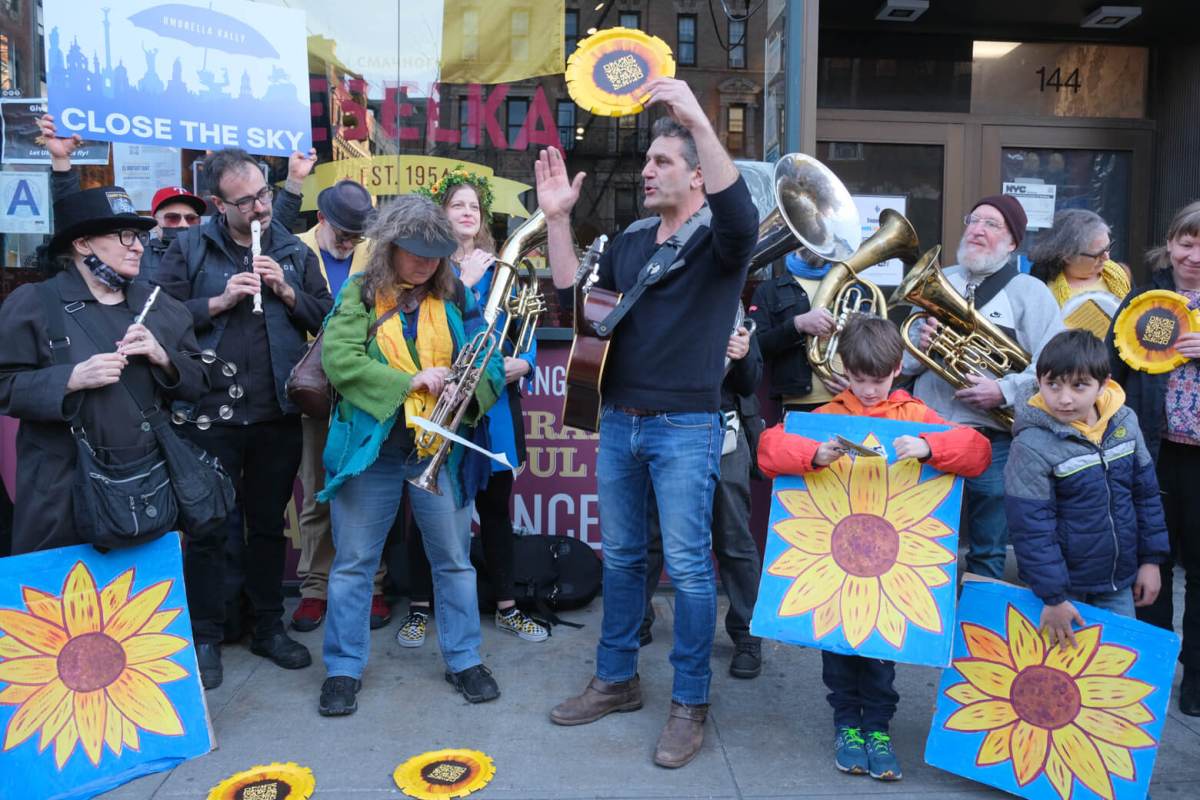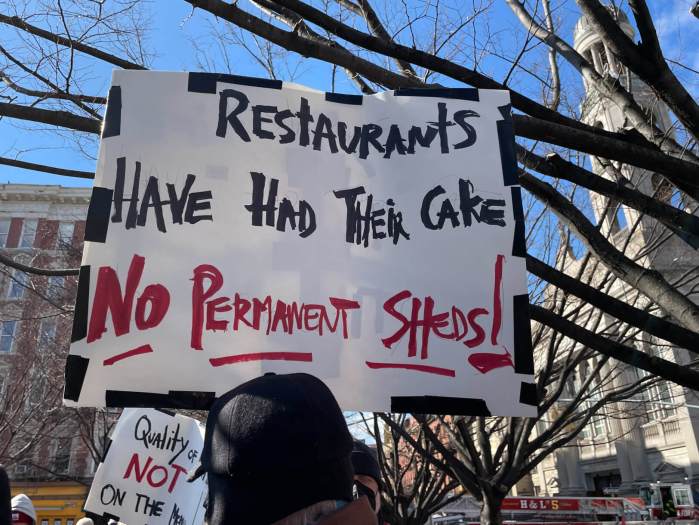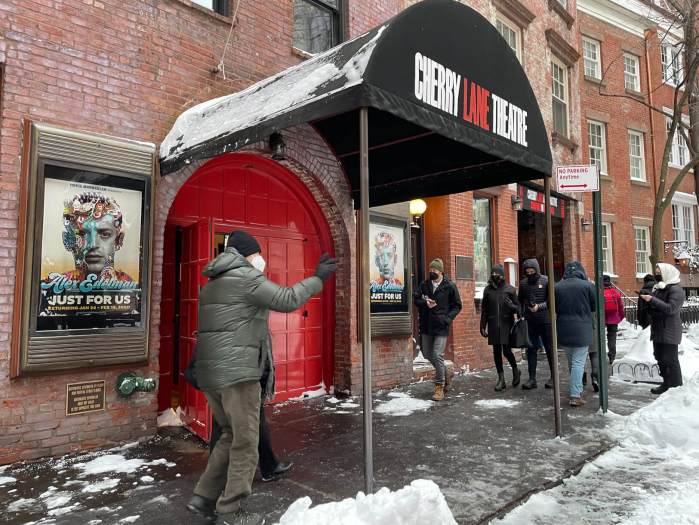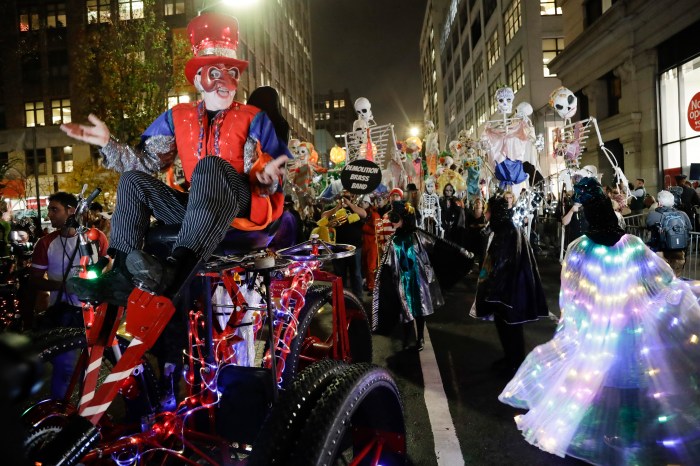At dusk in Elizabeth Street Garden on Friday, Villagers gathered at the grassy area to pay tribute to and support the people of Ukraine.
Deacon Adrian Mazur of the Ukrainian Holy Orthodox Church located on Broome and Elizabeth led a service. Candles held by the assembled lit their faces.
Council Member Chris Marte attended St. Agnes High School with Deacon Mazur. “The vigil meant a lot to me to stand in solidarity with local Ukrainians like my friend Adrian and to pray for his family and friends who are fighting for democracy or being displaced from their home country,” Marte said. “Even though we are thousands of miles away, we are all connected and have to do whatever we can to support the Ukrainian people.”
Keen Berger was particularly moved by the sense of connectedness. “After the vigil, we planted sunflower seeds—sunflowers, the national flower of Ukraine—to symbolize hope and light.”
Daily news of bombardments, death, and refugees seeking safety weigh heavy on the hearts of New Yorkers.
Judson Memorial Church held a special form of service on Sunday. In lieu of a sermon, Rev. Julie Johnson Staples , J.D., the Transition Minister at Judson, engaged in an exchange with Alisa “Tzipi” Zilbershtein, a fifth year rabbinical student at Jewish Theological Seminary. She is from Ukraine.
“Peace calls for deep listening to inspire right action,” said Rev. Staples. “In the face of this brutal war and an epic humanitarian crisis that has forced more than three million people into refugee status, making space to listen and learn first hand is one step we can take to become part of the solution.”
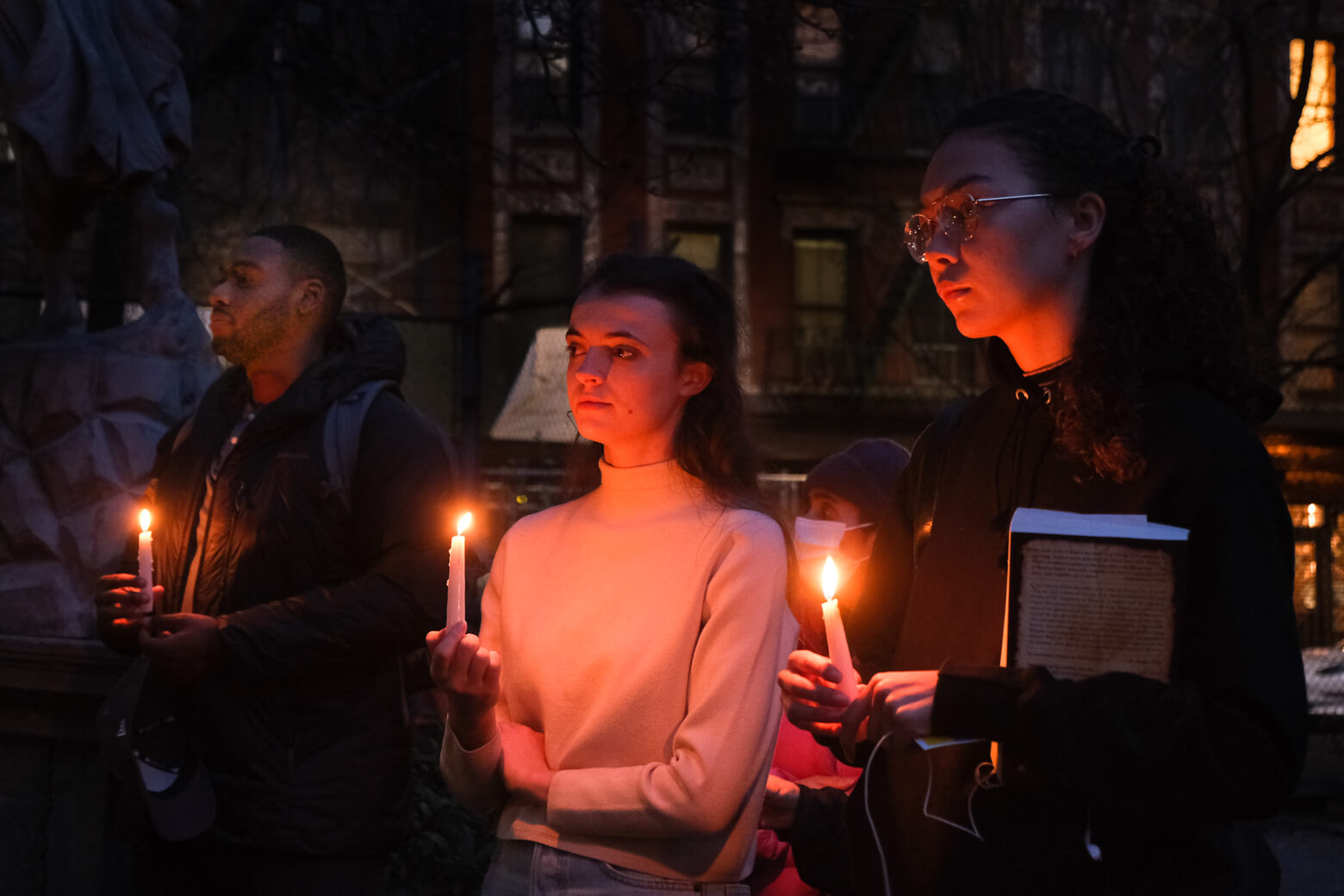
Entitling the service segment Queen Esther’s Battalions, Rev. Staples informs all that there were 3200 women in the Ukrainian armed services before Russia invaded. Women are part of the war effort—medics, in the troops, and providing humanitarian relief, evacuation transportation, and finding food and shelter.
Tzipi then spoke, pointing out that it took a long time to get to this point of war—eight years, not just the last 25 days. The last 25 days have become a new reality for her—her time completely devoted trying to help people in Ukraine. First reaching out to all the people she knows in Ukraine—all friends and relatives, she implored, “What do you need, what do you need right now?”
“Everyday something new happens, and every day I’m able to help multiple people,” Tzipi says.
She gives an example of finding a volunteer in another city to accompany a child to the border; this includes buying a bulletproof vest to help protect the volunteer. Another example she recalls is of one woman looking to evacuate, the number grows to three women needing to leave, as she to finds a driver to take them to the border.
She sends money to help persons find gas or food or medications—helping people directly on an individual basis. “The work gives me strength because I know I can help people,” Tzipi says.
She reads a text message to the people of Judson from a young man in Ukraine who helps buy people food: All we want is peaceful sky and that the Satan leave us alone…Please ask the people of Judson to pray for the people who have died in this war, and today we will pray for you as well.
Tzipi suggests to the congregation that one way to help is to give find churches giving humanitarian assistance, pastors who are working there right now.
Questions came from the congregation.
How might we reignite a world peace movement, like the one in the 60s, hopes of peace that once had a Russian origin since Tolstoy was a pacifist who influenced Gandhi who influenced Martin Luther King?
Tzipi says how she isn’t now seeing activity like the 60s against the Viet Nam War, as she encourages people to “make some positive acts,” events and post them on-line. Sharing with others will help to get them inspired. In addition to organizing rallies and peaceful events, she suggests collecting medications and writing politicians to accept Ukrainian refugees.
What would you say to pacifists who want to support Ukraine but fear the distribution of lethal weapons? Is it immoral to be opposed to the arms deliveries? Her answer: We all are going to die and there will be no arms deliveries.
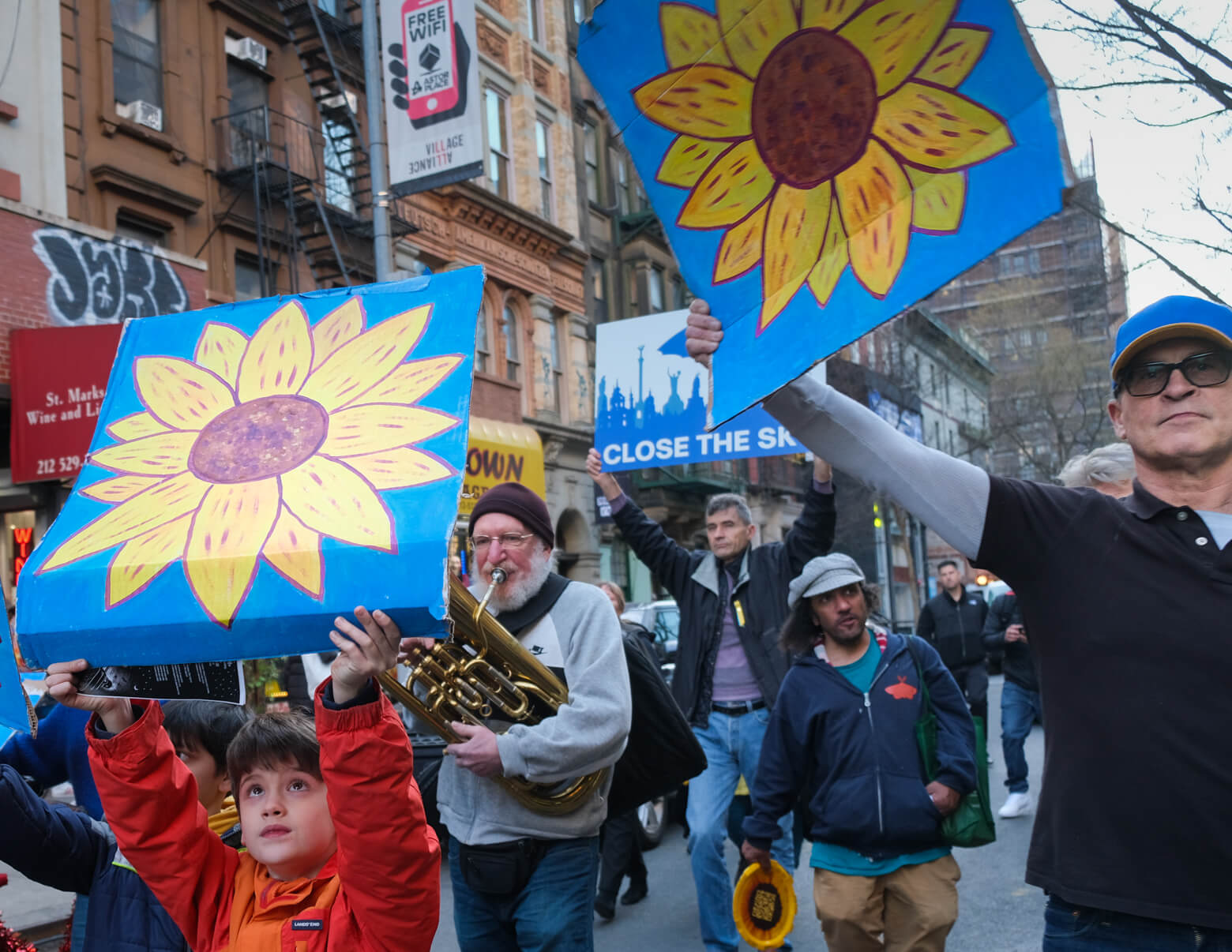
“I sorry we need weapons. We need weapons; we need more weapons that we have right now. I understand your feelings; support humanitarian organizations. There is no way around this. We feel that the United States actually is not doing enough to supply weapons. People are dying every day. There are hundreds of children that have been killed. Are we all going to die because of pacifism?”
Another question: Can we end this war through diplomacy or are we heading to World War III?
Ms. Zilbershtein responded in quoting President Zelensky, “Diplomacy is always good and a great answer and we are counting on that. That’s why negotiations are going on right now and there are diplomats trying to find a solution. We count on diplomacy as well.”
This rabbinical student wrapped up by sharing how she prays for peace and hopes to go back home. And, she prays for strength for the soldiers, volunteers, and helpers and the souls for people who are wounded.
The following day, Villagers took to the streets in another expression of support.
At Astor Place musicians, brass bands, choruses and citizens joined Stephan Said with HONK! for Ukraine. To sing Glory to Ukraine, lyrics by Said, a trumpeter and tubas, musicians with a French horn, recorder, flute, percussion, with Said on guitar led a crowd singing the lyrics attached to paper plate sunflowers—Power to the people and equality, Down with fascist oligarch up with liberty. (A QR code on the sunflower points to download the sheet music, lyrics, and upcoming actions.) After warming up singing the eight stanzas a number of times, the assembled took to 8th Street, landing at Veselkas, singing through Glory to Ukraine again.



